Catharine Arnold Quotes & Sayings
Enjoy the top 14 famous quotes, sayings and quotations by Catharine Arnold.
Famous Quotes By Catharine Arnold
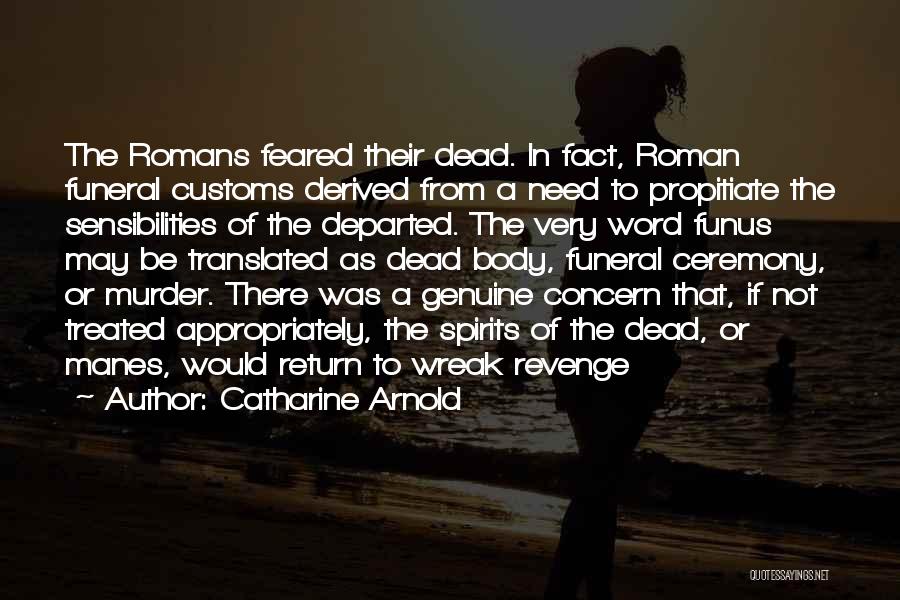
The Romans feared their dead. In fact, Roman funeral customs derived from a need to propitiate the sensibilities of the departed. The very word funus may be translated as dead body, funeral ceremony, or murder. There was a genuine concern that, if not treated appropriately, the spirits of the dead, or manes, would return to wreak revenge — Catharine Arnold

More than a hygienic method of disposing of the dead, cremation enabled lovers and comrades to be mingled together for eternity: — Catharine Arnold

In a policy shift which the historian Guy de la Bedoyere has compared with Western Imperialism, the Romans converted militant Britons to their way of life with consumer entincements, introducing them to the urbane pleasures of hot spas and fine dining, encouraging them to wear togas and speak Latin. — Catharine Arnold
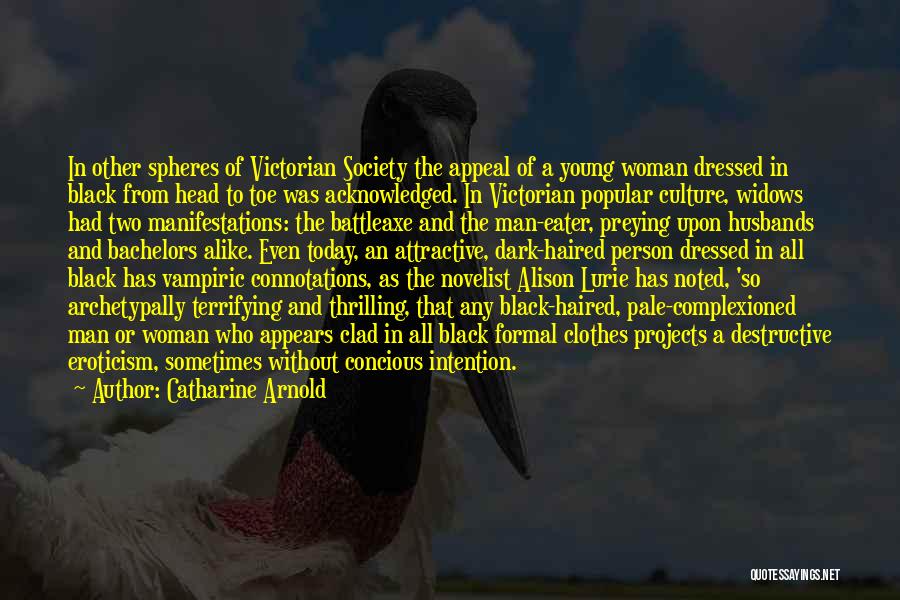
In other spheres of Victorian Society the appeal of a young woman dressed in black from head to toe was acknowledged. In Victorian popular culture, widows had two manifestations: the battleaxe and the man-eater, preying upon husbands and bachelors alike. Even today, an attractive, dark-haired person dressed in all black has vampiric connotations, as the novelist Alison Lurie has noted, 'so archetypally terrifying and thrilling, that any black-haired, pale-complexioned man or woman who appears clad in all black formal clothes projects a destructive eroticism, sometimes without concious intention. — Catharine Arnold
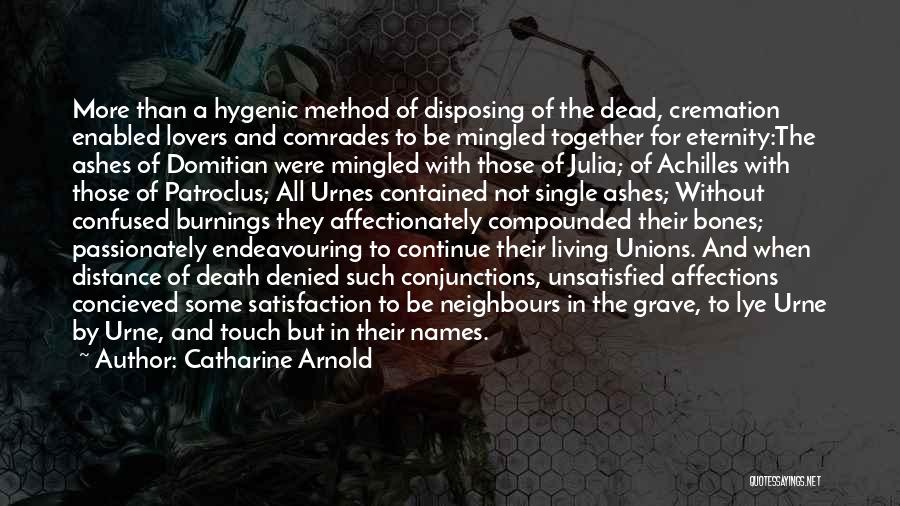
More than a hygenic method of disposing of the dead, cremation enabled lovers and comrades to be mingled together for eternity:
The ashes of Domitian were mingled with those of Julia; of Achilles with those of Patroclus; All Urnes contained not single ashes; Without confused burnings they affectionately compounded their bones; passionately endeavouring to continue their living Unions. And when distance of death denied such conjunctions, unsatisfied affections concieved some satisfaction to be neighbours in the grave, to lye Urne by Urne, and touch but in their names. — Catharine Arnold
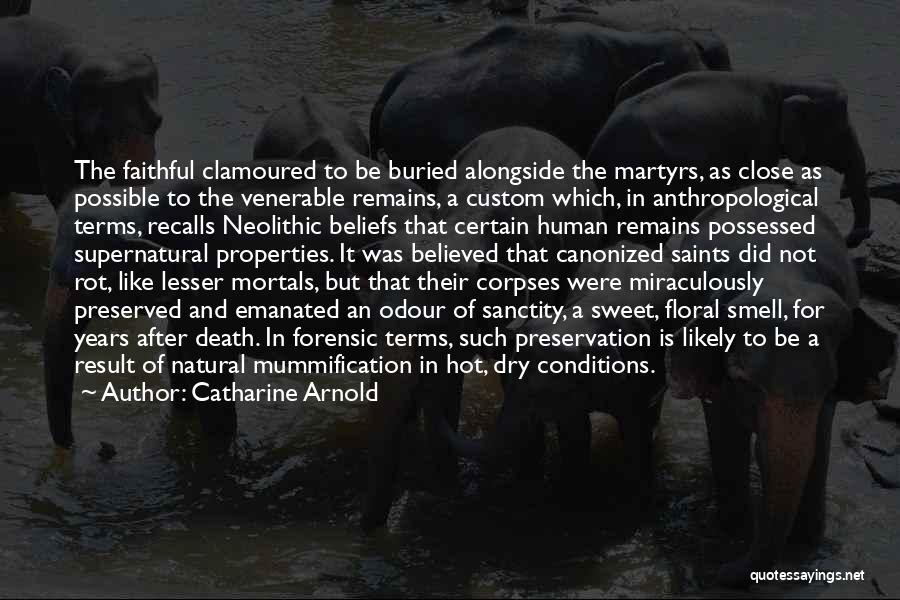
The faithful clamoured to be buried alongside the martyrs, as close as possible to the venerable remains, a custom which, in anthropological terms, recalls Neolithic beliefs that certain human remains possessed supernatural properties. It was believed that canonized saints did not rot, like lesser mortals, but that their corpses were miraculously preserved and emanated an odour of sanctity, a sweet, floral smell, for years after death. In forensic terms, such preservation is likely to be a result of natural mummification in hot, dry conditions. — Catharine Arnold
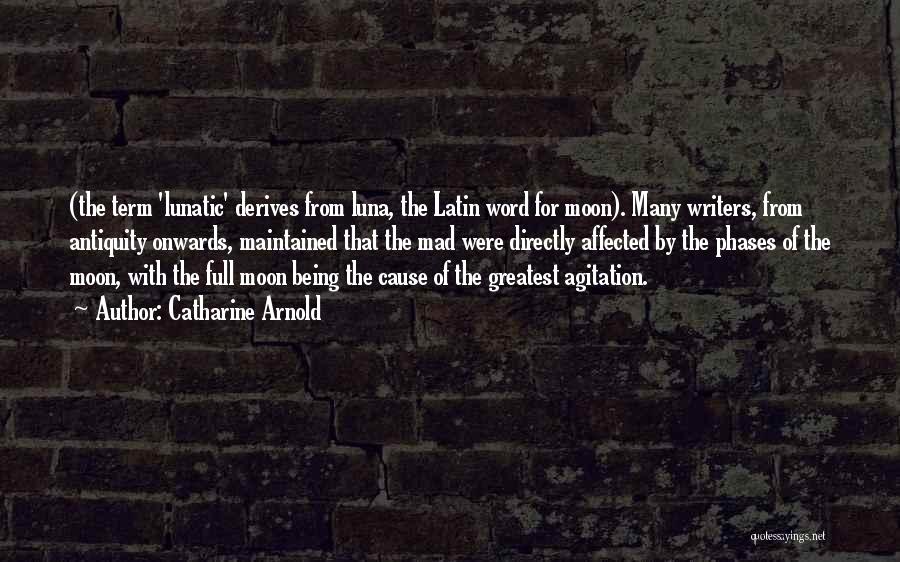
(the term 'lunatic' derives from luna, the Latin word for moon). Many writers, from antiquity onwards, maintained that the mad were directly affected by the phases of the moon, with the full moon being the cause of the greatest agitation. — Catharine Arnold

In the words of Euripides, 'those whom the Gods wish to destroy, first they make mad'. — Catharine Arnold

Death and burial were a public spectacle. Shakespeare may have seen for himself the gravediggers at St Ann's, Soho, playing skittles with skulls and bones. — Catharine Arnold
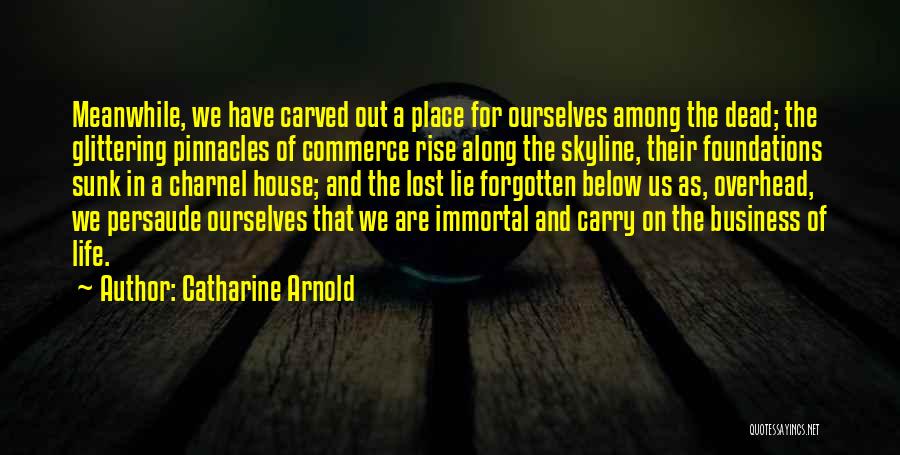
Meanwhile, we have carved out a place for ourselves among the dead; the glittering pinnacles of commerce rise along the skyline, their foundations sunk in a charnel house; and the lost lie forgotten below us as, overhead, we persaude ourselves that we are immortal and carry on the business of life. — Catharine Arnold
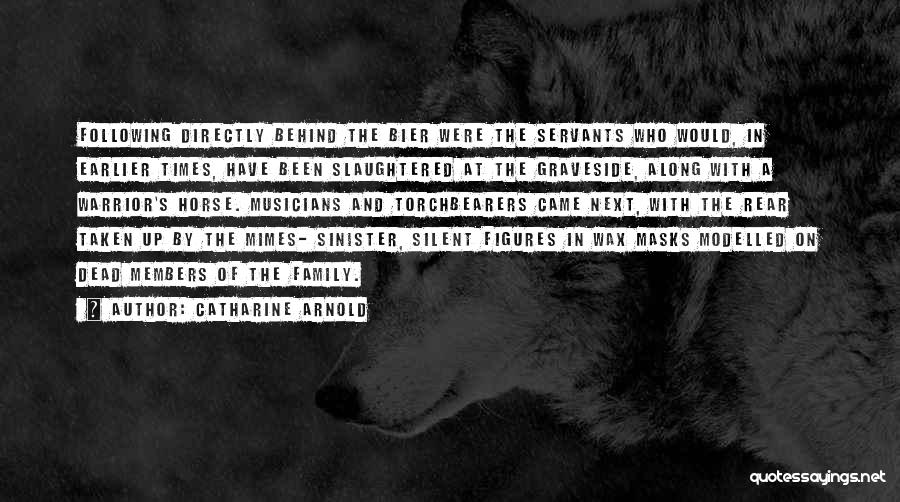
Following directly behind the bier were the servants who would, in earlier times, have been slaughtered at the graveside, along with a warrior's horse. Musicians and torchbearers came next, with the rear taken up by the mimes- sinister, silent figures in wax masks modelled on dead members of the family. — Catharine Arnold
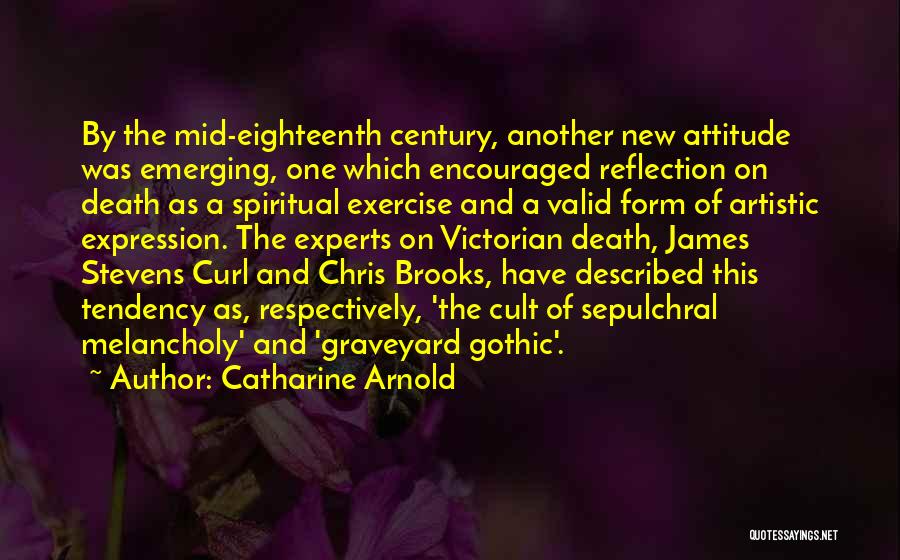
By the mid-eighteenth century, another new attitude was emerging, one which encouraged reflection on death as a spiritual exercise and a valid form of artistic expression. The experts on Victorian death, James Stevens Curl and Chris Brooks, have described this tendency as, respectively, 'the cult of sepulchral melancholy' and 'graveyard gothic'. — Catharine Arnold

Fifteen years later, in 1601, Thomas Wright's The Passions of the Minde was devoted to showing man how wretched he had become through his inability to control his passions. This study, designed to help man know himself in all his depravity, emphasised sin rather than salvation, claiming that the animal passions prevented reason, rebelled against virtue and, like 'thornie briars sprung from the infected roote of original sinne', caused mental and physical ill health.20 Despite its punitive message, the book went into further editions in 1604, 1620, 1621 and 1628, suggesting that the seventeenth-century reader was a glutton for punishment. — Catharine Arnold
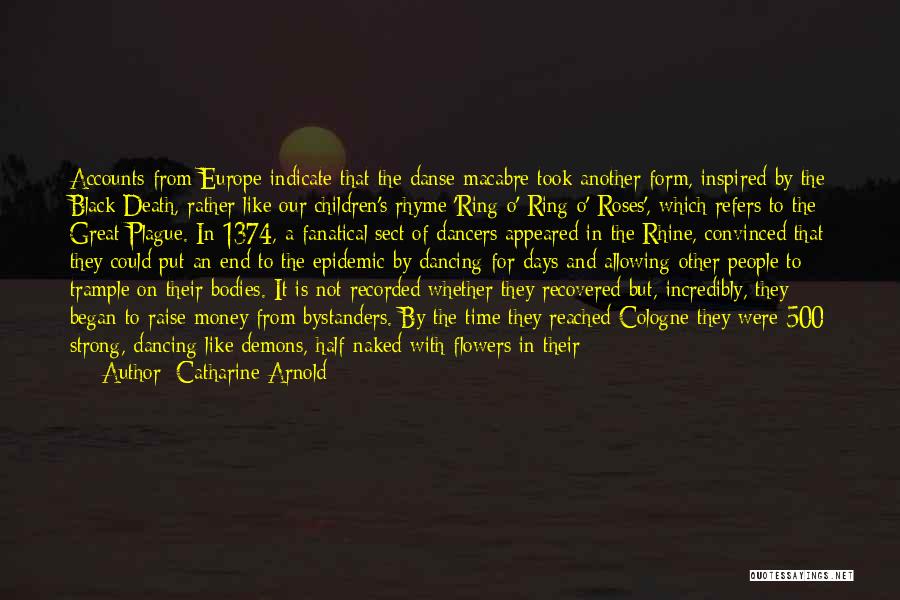
Accounts from Europe indicate that the danse macabre took another form, inspired by the Black Death, rather like our children's rhyme 'Ring o' Ring o' Roses', which refers to the Great Plague. In 1374, a fanatical sect of dancers appeared in the Rhine, convinced that they could put an end to the epidemic by dancing for days and allowing other people to trample on their bodies. It is not recorded whether they recovered but, incredibly, they began to raise money from bystanders. By the time they reached Cologne they were 500 strong, dancing like demons, half-naked with flowers in their hair. Regarded as a menace by the authorities, these dancers macabre were threatened with excommunication. — Catharine Arnold





